


Police Quest departs from a lot of adventure games in both it's freedom and it's restrictions. It constantly reminds you what is necessary to be a good cop, it gives you power, and then immediately puts restraints on that power. In each game you are given a number of scenarios that actual policemen face (apart from the over-all plot of the game which involves bringing in a really nasty badguy). In these situations, you have to carefully gauge how much force to use. If you go overboard, you'll be thrown off the force, and the game will tell you in no uncertain terms that the consequence is another criminal back on the streets. It's a tough game with a higher learning curve than most point and click adventure games but it's worth it for the satisfaction of completing each title. This one is a true classic, and definitely worth your time.
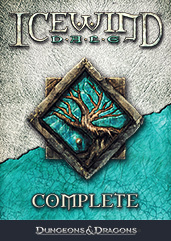
Don't get me wrong, Icewind Dale has a lot going for it. It's one of the prettier CRPGs out there, the pallets match the atmosphere well, the spells and combat look great, and the character animations are passable. When it comes to the other absolute giants in the field, Planescape: Torment, Baldur's Gate, etc., it just doesn't match up. The plot is fairly barebones, and there's no character development save for what you might write yourself. More than the other games, Icewind's RPG elements essentially serve to move you from one exapansive combat to the next. It's the combat where the game shines. It requires a lot of attention to detail, but it's probably one of the better uses of the D&D combat system around. Nevertheless, I always felt cheated by Icewind Dale. Of course, this game had the unenviable position of being the next one I played after Planescape, which is the greatest of its kind bar-none. If you're looking for a highly customizable action RPG, this one is definitely for you. If you're looking for something with depth, story and character, you're better of looking elsewhere.
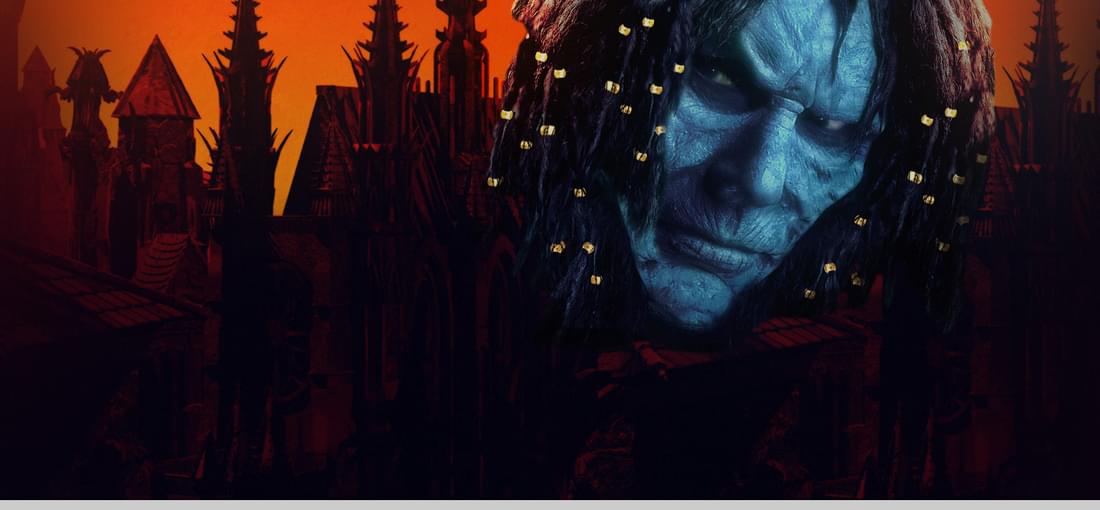
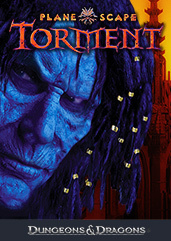
I say, without reservation, that Torment is the best RPG ever made. I can remember playing it for the first time and immediately being sucked in. I actually cared about these characters, which made the ending all the more poignant. If you're familiar with the D&D Planescape setting, this game remains the best use of it. If you're unfamiliar with it, so much the better, as you can explore and discover this rich and bizarre universe along with your protagonist. You play The Nameless One, who wakes up on a gurney in a morgue with only a floating, wisecracking skull as a companion. Your body is laced with scars and covered with tattoos that tell stories of strange past lives. You soon learn that you are immortal. Every time you die, you wake up with no memory of your past life, and worse yet, you're being hunted. You have to find out who you are, and what is trying to kill you, gather a group of intriguing characters along the way. The graphics are superb for the game's time. Spell effects are amazing, combat is well done, and the dialogue and ambient music are stunning. Better yet, the choices you make are real. There are no worthless stats, there are no small decisions. Planescape is a world shaped by thought and belief. You can conjure characters into being, or even out of being through acts of will, and the characters you meet are often literal manifestations of good, evil, law and order. If you like RPGs you simply must play this game. It remains the pinnacle, in my opinion, of character development, use of setting, and gameplay.
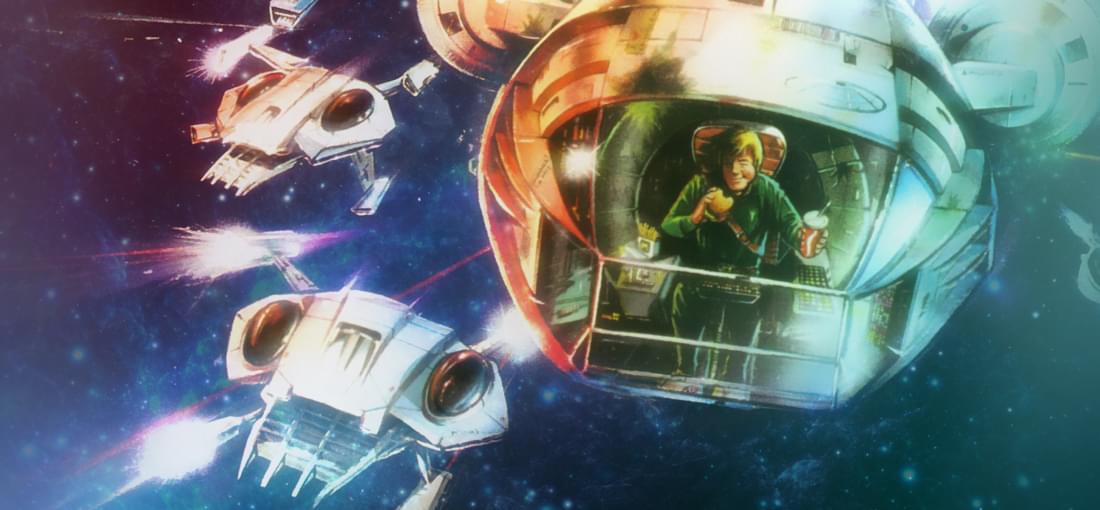
The Space Quest series come from a time in my childhood when PC gaming was largley defined by the adventure. Sierra was the undisputed king of adventure gaming, with such golden franchises as Leisure Suit Larry, King's Quest, Quest for Glory, and yes, Space Quest. Space Quest takes Sierra's noted goofy humor to an all new level, and creates fun, engaging game play. You play a janitor, who through sheer laziness, incompetence and dumb luck manages to foil the villains in every game. Thus, the gameplay requires you to work and think like a janitor. You have paltry tools, and weird items that you must constantly use in creative ways to solve impossible problems and ridiculous odds. You rarely get to shoot back and the gun toting thugs trying to vaporize you. You'll by doing a lot of typing on the first two, but the games gradually advances to a more intuitive point and click interface. Make no mistake, however, these games are hard. Those who have played through them a thousand times may have forgotten how unforgiving the early adventure games were. Space Quest, however, is rewarding for all its difficulty. It dishes out ridiculous humor, goofy aliens, and slapstick regularly, and is definitely worth your time whether you want to relive the glory days, or take a trip the mists of gaming time.

Syberia is probably one of the best, if not the best adventure game ever written. Each step of the game is like descending into a dream world, like our own and yet just strange and different enough to be enchanting. The game follows the story of a young lawyer who is sent to get the last surviving heir of a famous toy and automaton factory to sign it over to a large corporation. This chase leads her across the country in a clockwork train, following an elusive and brilliant adventurer searching for the last living Mammoths on Earth. The voice acting is superb, the puzzles both challenging and logical and the scenery breath taking. If you missed Syberia the first time, as so many people did, you missed out. This game is well worth your time.
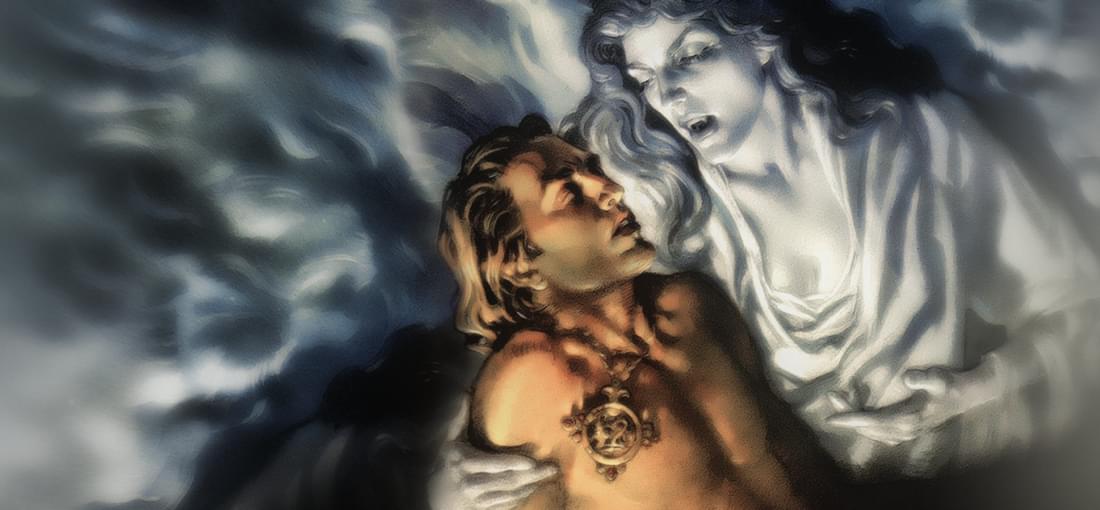
Put simply, Gabriel Knight did not transition to 3d well. GK:3 suffered from wanting to be on the cutting edge without fully knowing how to use or grasp the technology. The look and game play suffered as a result. GK:3 puts Gabriel in the south of France to solve a Dan Brownesque mystery regarding a kidnapped infant, vampires and the holy grail. The ambient sound and voice acting are superb, but the visuals are lacking, mainly due to the use of low resolution textures broadly applied across large areas of the screen. Worse yet, the gameplay suffers quite a bit. The sections of the game where you play Grace are still up to par, letting you solve some pretty big mind teasers. The Gabriel sections are generally simple, boring or in some areas ludicrous. This includes the infamous cat mustache puzzle lampooned quite justly on Old Man Murray back when the game came out. This puzzle is difficult not because it's clever but because you're simply left stumped by the illogical and idiotic nature of the solution. The game ends on a cliff hanger and there was clearly meant to be a fourth Gabriel Knight, but the reaction to this game was lukewarm at best, and interest in the series died soon after its release. GK:3 represents the adventure genre at its nadir, when game companies were doing everything in their power to resuscitate adventure gaming's corpse by latching onto whatever gimmick they could find. It led to sloppy, ill thought out, moon logic puzzles, and ugly game play in quite a few venerable franchises. GK:3 is just another regretful victim of the trend.

GK:2 stands out as probably the best of a brief spate of games that came out in the 90s featuring live actors in streaming video. The game uses excellent actors, a simplified and intuitive method of interaction and a compelling story-line to perfect what was always a flawed gaming system and deliver a fantastic, deep adventure game. The Beast Within is, obviously a sequel. It rejoins Gabriel Knight, now as a struggling Shattenjaeger in Germany trying to solve a string of murders involving a suspected werewolf. Unlike most sequels, which just provide more of the same, GK:2 reinvents itself. Due to the method of using live actors the interface has been completely retooled. No more do you have to choose between take, move, operate and speak commands. If you can use it, the cursor will change to a dagger and allow you to do so. There is a great deal to operate, which gives you a much greater feeling of being involved in the action than most games of this type. Unlike other live action games, which often leave you feeling like you're just passively watching a bad movie, GK:2 keeps you involved, making you feel like a detective in a dime store murder mystery. GK:2 stands out, for me, as the best of the series. The quality of the series fell off sharply in the third installment as it attempted to make a transition to full 3-d. Here however, the game designers manage to transition beautifully into a new style, taking the best and discarding the worst.